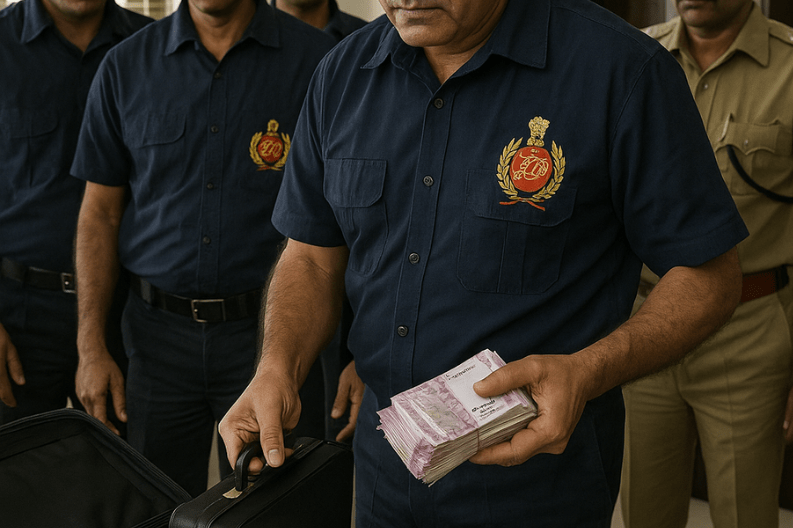A major investigation into the Andhra Liquor Scam worth Rs 3,500 crore has shocked the state and beyond. The Enforcement Directorate (ED) conducted searches at 20 locations across Andhra Pradesh, Telangana, Tamil Nadu, Karnataka, and the Delhi-NCR region. Officials are targeting companies and individuals suspected of arranging illegal kickbacks through fake invoices. Former Chief Minister Jagan Mohan Reddy also faces serious allegations in connection with the case.
On Thursday, ED officers raided several firms and residences linked to the scandal. They focused on uncovering how monthly kickbacks of Rs 50-60 crore may have been generated. Working alongside the Andhra Pradesh Police’s Special Investigation Team (SIT), investigators have already filed multiple charges against those allegedly involved. Sources confirm that arrests include a sitting Member of Parliament from the YSR Congress Party, P.V. Midhun Reddy.
The SIT claims that the previous YSRCP government used its power to manipulate state liquor laws. This control allegedly gave certain individuals the chance to earn illegal profits from liquor distribution. According to investigators, the scam flourished because of loopholes in regulations, which were misused for private gain.
Officials have searched the properties of many companies and individuals. These include Arete Institute of Medical Sciences Pvt Ltd, Shree Jewellers Eximp, NR Udhyog LLP, India Fruits Pvt Ltd in Chennai, Venkateshwara Packaging, Suvarna Durga Bottles Pvt Ltd, Rao Saheb Boorugu Mahadev Jewellers, Ushodaya Enterprises, and Mohan Lal Jewellers in Chennai. Their financial activities are under deep scrutiny to identify money trails and fake billing practices.
The scam has stirred public anger and debate over corruption. Citizens now demand answers about how government systems allowed such practices to thrive. Many also want clear reforms in state-operated liquor sales to ensure greater accountability. Experts suggest that stronger audits, transparent digital records, and stricter enforcement could prevent similar frauds.
Investigations show that false invoices created a hidden system of money transfers. These transactions allowed companies to funnel illegal funds and hide evidence. This method not only weakened public trust but also exposed how systemic corruption can impact governance.
Public trust has taken a hit, and many people are watching closely to see whether justice will follow. The ED and SIT have promised fair and thorough inquiries. Observers believe that if the guilty face tough penalties, it will send a strong message that such scams will not be tolerated.
At the same time, this case highlights the urgent need for reforms in liquor policy. Analysts argue that better monitoring, transparent tenders, and third-party audits are key solutions. Without such steps, the state risks repeating these mistakes.
However, the Andhra Liquor Scam now stands as a reminder of how corruption affects governance, society, and trust. Citizens hope that this time the outcome will not only punish the guilty but also push the state toward lasting reforms.



